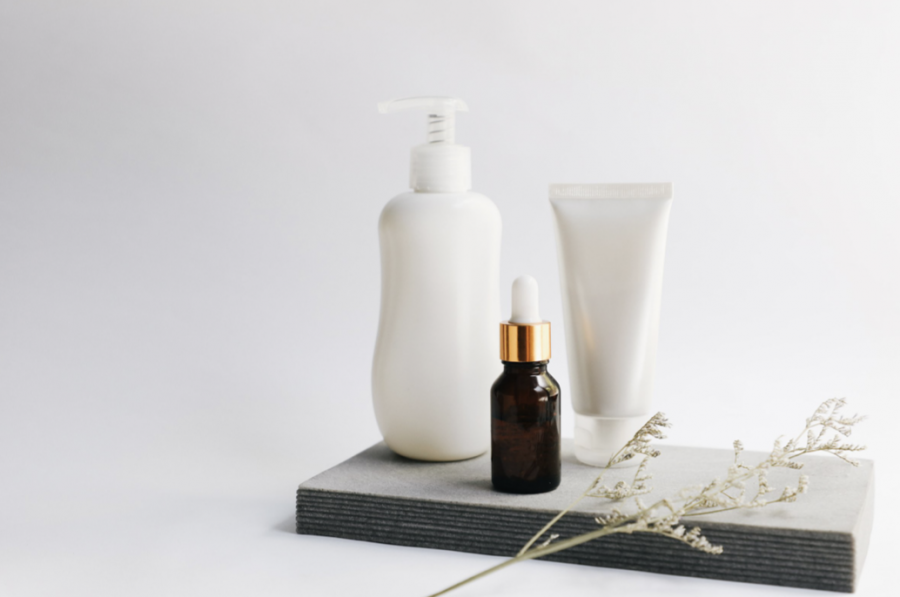Think Dirty app gets honest with consumers
One app is getting honest with consumers about the ingredients in their every day products that could cause serious damage and health issues.
Mar 12, 2021
Think Dirty is an app that helps lead the charge in giving consumers honest evaluation on the health, safety and ethical practices of household, personal care and beauty products.
According to the California Department of Public Health, 595 cosmetic manufacturers reported using 88 chemicals in over 73,000 products in 2019, many of which are linked to cancer, birth defects or harm to the reproductive system.
Some of the worst, yet most common, chemicals include formaldehyde, a known carcinogenic material; mercury, damaging ingredient to kidneys and nervous systems; isobutyl parabens, disrupting hormones that can injure the reproductive system; and polyfluoroalkyl, known as PFAS and linked to cancer. Even the fragranced products we use every day like shampoo, face wash, makeup and disinfectant spray may be doing more harm than good.
Think Dirty has verified more than 4,500 brands and evaluated nearly 1.4 million products. Their users have scanned more than 26.2 million products to discover what is really inside.
After becoming mindful of clean beauty, John Carroll alumna Kathleen Mackey ‘19 tried Think Dirty to find out the ingredients in her favorite products. “Skin care can be really stressful and overwhelming. I feel like, for teens and young adults, there is a lot of pressure to have flawless skin and use whatever products claim to achieve it,” said Mackey. “But that can sometimes do a disservice to our skin.”
As stated on its website, Think Dirty’s core methodology when evaluating “cleanliness” is determined by publicly available data released by both nonprofit and governmental agencies. “We assess the overall risk of a given product based on the potential health impacts of its published ingredients. Each ingredient listed on the product label or manufacturer’s website is evaluated for documented evidence of carcinogenicity, developmental and reproductive toxicity, or allergenicity and immunotoxicity.”
The rating scale runs from 0 to 10, where 0 to 3 means the product does not contain any ingredients that have documented potential negative health impacts, 4 to 7 means the product has some ingredients that will have moderate long-term health effects and 8 to 10 means the product could have serious detrimental health effects that could pose a threat long term.
“I found Think Dirty is really helpful to use as a quick reference to get a sense of the ingredients and overall ‘clean’ rating for the products I consider purchasing or already use,” Mackey emphasized.
Not only does Think Dirty rate ingredients through research-driven analysis, the app gives users the opportunity to leave reviews on the products and create their own profiles where they can save their favorite products on their ‘bathroom shelf.’
The app’s user-friendly compatibility allows users to scan barcodes or type in the names of products while shopping or sorting through products at home.
To put this innovative app to the test, The Carroll News used Think Dirty to evaluate how dirty or clean some of the most popular products are and offer some clean, conscious alternatives:
Mario Badescu Skin Care Facial Spray with Aloe, Herbs and Rosewater
Rating: 8
Reason for Rating: Product uses fragrance without clear policy or clarification on whether the fragrance was created synthetically or is all-natural.
Alternative Product: Erin’s Faces Soothing Aloe Cleanser (Rating 0)
Tarte Shape Tape Concealer
Rating: 8
Reason for Rating: Product contains T-butylhydroquinone, a possible carcinogen with mild irritations, bioaccumulative and toxic to aquatic organisms when run off into water systems. Product also uses fragrance without clear policy on whether the fragrance was created synthetically or all-natural.
Alternative Product: Mad Hippie Concealer, Fitglow Beauty Conceal + or Rejuva Minerals Mineral Concealer (Rating 0)
Curology Cleanser
Rating: 4
Reason for Rating: One of the product’s leading ingredients is polyethylene glycol, which is used as a thickener and solvent that can cause irritation towards eyes, itchiness or general sensitivity.
Alternative Product: Silk Therapeutics Refresh Facial Cleanser (Rating 0)
Old Spice Pure Sport Scent Deodorant
Rating: 8
Reason for Rating: Despite the strong fragrance that masks odors, it does more harm than good. The denatured alcohol ingredient is approved but limited by the FDA.
Alternative Product: Native Charcoal Deodorant (Rating 0)
Neutrogena Hydro Boost Hydrating Cleansing Gel
Rating: 8
Reason for Rating: Product contains unnecessary parfum that can cause skin irritation, sensitizing effects and potential respiratory or skin irritation.
Alternative Product: Juice Beauty Green Apple Brightening Gel Cleanser (Rating 0)
Glossier Super Glow
Rating: 3
Reason for Rating: Product contains magnesium PCA and Metaine which have a 3 rating. However, Super Glow does contain many clean ingredients, such as magnesium ascorbyl phosphate, glycerin, Evodia Rutaecarpa fruit extract, simmondsia chinensis seed oil and water.
Alternative Product: Jusu Body Frankincense Pearl Face Serum
Laneige Hypoallergenic Cica Sleeping Mask
Rating: 3
Reason for Rating: Product contains tea tree leaf oil, which can irritate the skin, and a few other potential skin irritants, but overall it has a clean rating.
Alternative Product: Tropic Deep Hydration Soothing Cooling Mask
Cocokind Texture Smoothing Cream
Rating: 3
Reason for Rating: This is a relatively clean product, but it does contain lecithin, sodium phytate and cucumber water that can be irritating to sensitive skin despite the refreshing and soft result.
Alternative Product: Fitglow Beauty Redness Rescue Cream
Think Dirty takes into consideration the environmental, social and overall sustainable practices from how products are manufactured to what happens when we use them. “We are solely concerned about the possible impact of a given product on an individual’s health, and our ratings methodology reflects that singular commitment.”













